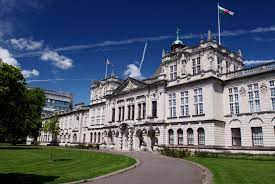Cardiff University’s Festival Spotlights Lifelong Wellbeing, Showcasing the Impact of Social Science Research
Academics are set to share their work with new audiences as part of this year’s Festival of Social Science.
Cardiff University is working with Bangor University and Swansea University to host a range of in-person and virtual events across Wales. Taking place from 21 October to 17 November, the festival is centred around the theme of lifelong wellbeing, inspired by the 75th anniversary of the NHS.
Highlights include art workshops to explore the benefits of wild swimming, an interactive session to increase accessibility to music through British Sign Language (BSL), and a photographic exhibition and talk discussing companion animals and assistance dogs.
Academics will be speaking with young people in schools during sessions covering a diverse range of topics including health law and ethics, living with drought and the Welsh food system.
There will also be a public panel discussion on lifelong wellbeing in Wales which will bring together experts from Cardiff, Swansea and Bangor Universities.
Professor Claire Gorrara, Dean for Research and Innovation for the College of Arts, Humanities and Social Sciences, said: “The Festival of Social Science provides us with an exciting opportunity to celebrate and raise awareness of our outstanding social science research that addresses wellbeing and health challenges. Our impactful research is informing the development of policies, services and innovation, and addressing major societal challenges in Wales, the UK and internationally.”
Stian Westlake, Executive Chair of the Economic and Social Research Council, said: “The ESRC Festival of Social Science offers a fascinating insight into some of the country’s leading social science research and its relevance to individuals and society. The festival offers hundreds of free events across the UK, including at Cardiff, Bangor and Swansea Universities. We hope the events are enjoyable and inspiring.”
The Festival of Social Science is made possible thanks to funding from the Economic and Social Research Council (ESRC), which is part of UK Research and Innovation (UKRI).

